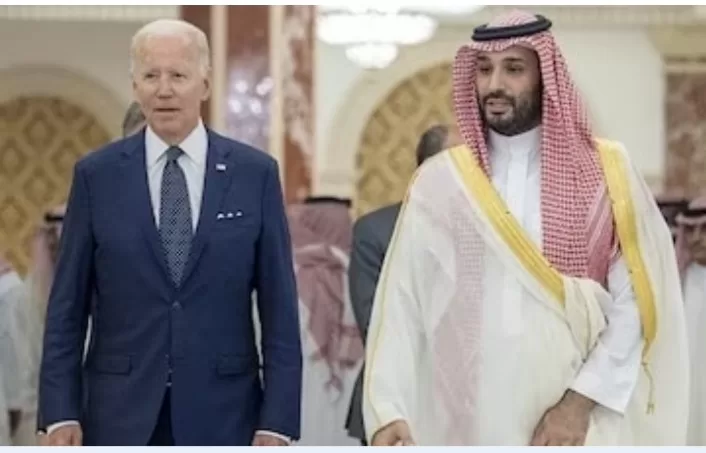RIYADH— Saudi Arabia is reportedly placing on hold its US-backed initiatives to normalize relations with Israel, marking a swift adjustment in its foreign policy priorities as the conflict intensifies between Israel and the Palestinian group Hamas.
This abrupt shift has also prompted Saudi Arabia to engage in diplomatic discussions with Iran. Saudi Crown Prince Mohammed bin Salman recently had his first conversation with Iranian President Ebrahim Raisi, signaling Riyadh’s attempts to prevent further escalation of violence across the region.
Insiders familiar with Saudi Arabia’s perspective have disclosed that the talks related to normalization with Israel will be delayed for the time being. It appears that the issue of Israeli concessions to the Palestinians will take precedence when discussions are resumed, emphasizing that Riyadh has not abandoned this diplomatic pursuit.
Notably, Saudi Arabia, the birthplace of Islam and home to its two holiest sites, had previously indicated that it would not allow its quest for a US defense pact to be derailed, even if Israel did not offer significant concessions to the Palestinians in their pursuit of statehood. However, sidelining the Palestinian cause risks displeasing Arab nations across the region, especially as Arab media outlets broadcast images of Palestinians affected by Israeli retaliatory airstrikes.
The rethink in Saudi Arabia’s approach highlights the complexities faced by the United States in further integrating Israel into a region where the Palestinian cause remains a central concern among Arab nations. The “Abraham Accords,” which saw Gulf states, including the United Arab Emirates, normalize ties with Israel, were a significant step in this direction.
While US National Security Advisor Jake Sullivan indicated that the normalization effort is “not on hold,” the focus has shifted towards addressing immediate challenges. Furthermore, Washington had urged Saudi Arabia to condemn the Hamas attack, which was met with resistance from the Saudi Foreign Minister.
The ongoing regional conflict has also prompted a crucial dialogue between Saudi Arabia and Iran, facilitated by a Chinese-brokered initiative that led to the reestablishment of diplomatic ties in April. The call between the Saudi Crown Prince and Iran’s President aimed to support Palestine and prevent the spread of conflict in the region, and it has been characterized as positive by officials.
Saudi Arabia, in its statement, emphasized its opposition to civilian targeting and loss of innocent lives and affirmed its unwavering stance in support of the Palestinian cause.
As Saudi Arabia strives to de-escalate tensions in the Middle East, it is concurrently seeking a resolution to the conflict in Yemen, where Riyadh has led a military coalition against the Iran-aligned Houthis.
In conclusion, the evolving situation in the Middle East underscores the differing visions of Saudi Arabia and Iran for the region. While Saudi Arabia leans toward regional cooperation and economic development, Iran appears to prioritize confrontations with Israel.
By Reuters






